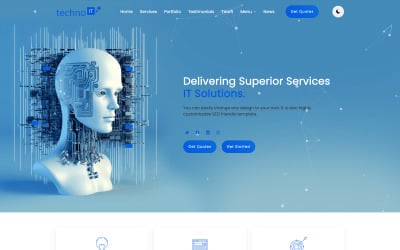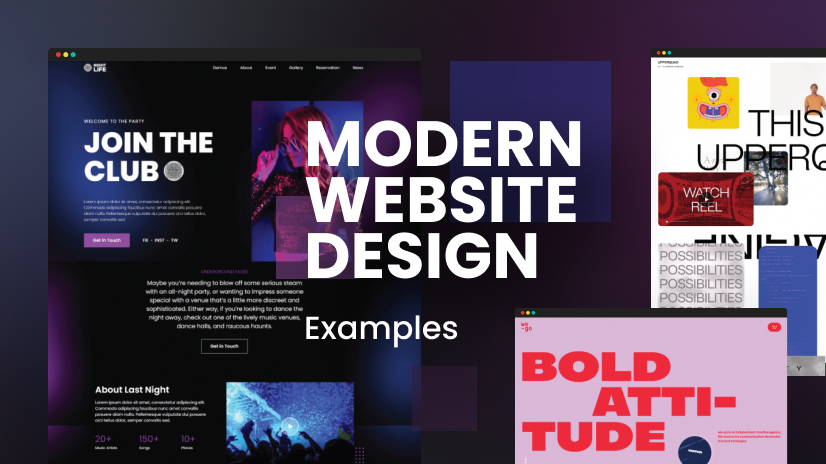Budget-Friendly Website Design Solutions for Medium Businesses
Budget-Friendly Website Design Solutions for Medium Businesses
Blog Article
Top Tips for Producing an Impactful Website Style That Converts
In today's electronic landscape, the relevance of an impactful site design can not be overstated, particularly when it involves transforming site visitors into customers. To attain this, one need to think about a selection of factors, consisting of comprehending the target market, focusing on individual experience, and optimizing for mobile platforms. In addition, the calculated use of engaging call-to-actions and a well-defined aesthetic power structure plays a vital role in directing individuals via their trip. As we explore these vital elements, it becomes apparent that the success of your web site rests on even more than simply visual appeal; it requires a thoughtful approach to design and performance.

Understand Your Target Market
Recognizing your target audience is basic to effective web site layout, as it prepares for creating an interesting customer experience. Identifying who your users are, including their demographics, preferences, and habits, enables developers to customize the internet site's material, design, and functionality to satisfy specific requirements.
Carrying out extensive marketing research is critical in this procedure. Studies, meetings, and analytics can supply useful understandings right into customer assumptions and pain factors. By assembling this information, designers can produce customer identities that represent various sectors of the target market, making sure that style choices are educated and relevant.
Moreover, understanding the target market aids in choosing suitable layout aspects such as color design, typography, and imagery that reverberate with users. An internet site that speaks directly to its target market fosters a sense of connection and depend on, urging longer check outs and greater conversion rates.
Ultimately, a user-centered strategy to internet site design not only improves individual satisfaction yet also sustains business goals by driving interaction and loyalty. By focusing on the demands and choices of the target audience, a website can properly offer its objective and attain wanted outcomes.
Prioritize User Experience
To boost the total effectiveness of an internet site, prioritizing user experience (UX) is essential (Website Design). A properly designed UX makes sure that visitors can navigate the website effortlessly, discover details swiftly, and involve with content meaningfully. This results in enhanced individual fulfillment and higher conversion rates
Begin by executing user-friendly navigation. Menus needs to be logically structured, enabling individuals to locate key locations of the site with minimal initiative. Uniformity in layout components, such as color design and fonts, cultivates familiarity, which is critical for preserving user interaction.
In addition, consider the packing speed of your internet site. A hold-up of just a couple of secs can lead to substantial drop-offs, as customers are less likely to await a slow-loading web page. Simplifying images and optimizing code can improve efficiency and maintain site visitors.
Additionally, quality in material discussion is important. Use concise, appealing language and separate text with visuals to improve readability. By prioritizing individual experience, you not just produce a much more delightful setting for site visitors yet also enhance your brand's integrity. Inevitably, an emphasis on UX is an investment in the long-lasting success of your website.
Maximize for Mobile Instruments
Optimizing for mobile phones is important in today's electronic landscape, where an enhancing number of customers gain access to web sites through mobile phones and tablet computers. A mobile-friendly style not only boosts user experience but also plays a significant role in improving internet search engine positions. To achieve this, it is necessary to embrace a receptive style that immediately gets used to numerous display sizes and orientations.

Filling speed is another essential element; mobile customers are usually less client and anticipate rapid accessibility to information. By prioritizing mobile optimization, you guarantee that your website continues to be competitive and efficiently engages a wider audience.
Use Engaging Call-to-Actions
An internet site's performance often depends upon its capability to lead site visitors toward wanted activities, making compelling call-to-actions (CTAs) important parts of layout. CTAs function as the crucial factors that route customers to involve with the website, whether that suggests making an acquisition, enrolling in an e-newsletter, or downloading a resource.
To create reliable CTAs, clarity is critical. Usage concise language that plainly interacts the action you want the user to take.
Moreover, the style of CTAs must stand out without Home Page being interfering. Use contrasting shades and clear typefaces to ensure they record interest. Furthermore, consider using directional hints, such as arrows or pictures, to direct individuals toward these switches. By concentrating on these components, companies can substantially boost user involvement, driving conversions and inevitably attaining their internet site's objectives.
Concentrate On Visual Pecking Order
Reliable website style depends heavily on a well-structured visual hierarchy that guides individuals with web content perfectly. By arranging elements in a fashion that prioritizes info, designers can boost customer experience and facilitate decision-making. This includes utilizing dimension, shade, contrast, and spacing tactically to draw attention to the most vital components of a website.
Using bigger fonts for headings and subheadings establishes a clear difference between different sections, allowing customers to scan content effortlessly. In addition, utilizing contrasting colors for switches and calls-to-action can catch individual interest and urge interaction. Whitespace is another vital component; it prevents clutter and makes it possible for individuals to concentrate on vital messages without disturbances.
Images and graphics must match the message while also sticking to the well established pecking order, reinforcing the overall message (Website Design). Uniformity in layout components, such as color pattern and typography, further strengthens the aesthetic pecking order, making navigating intuitive

Verdict
In conclusion, reliable web site style demands a thorough understanding of the target audience, prioritization of user experience, and mobile optimization. The tactical usage of engaging call-to-actions and a distinct aesthetic pecking order better improves user involvement. By executing these principles, sites can accomplish higher conversion prices, ensuring that design elements not just bring in site visitors but also assist in smooth navigating and interaction. Ultimately, a well-executed site style functions as an important component in driving customer activities and attaining service purposes.
Report this page